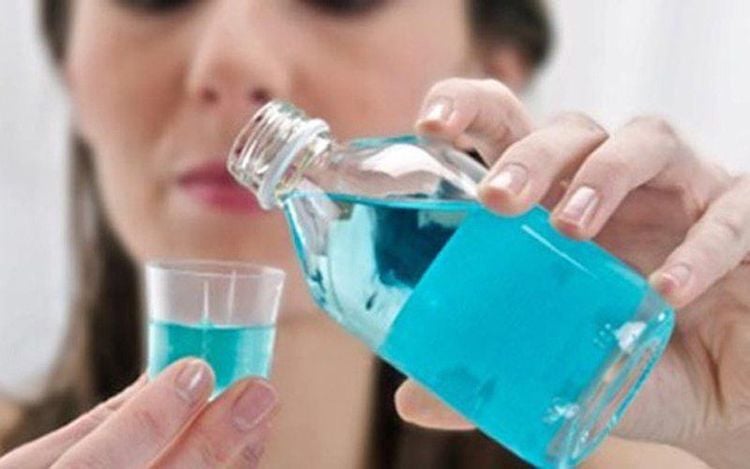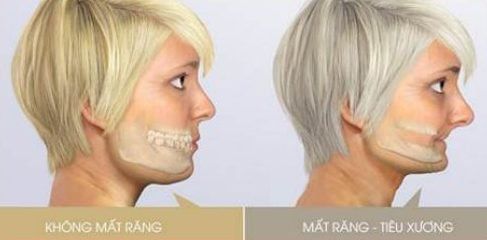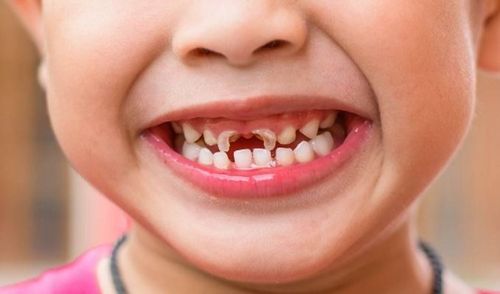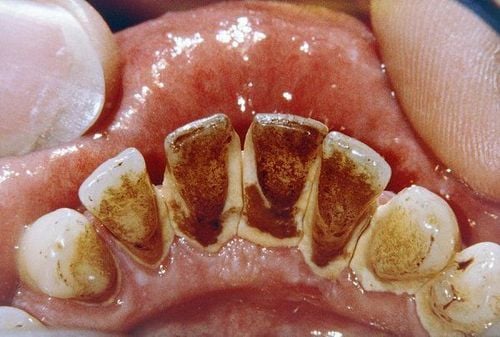This is an automatically translated article.
The article was professionally consulted by Specialist Doctor I Nguyen Trung Hau - Doctor of Odonto-Stomatology - Department of Medical Examination & Internal Medicine - Vinmec Da Nang International General Hospital.Enamel plays an important role in resisting external influences to help protect the inner pulp. However, tooth enamel can still be damaged, making teeth sensitive and susceptible to bacterial attack.
1. What is enamel?
Enamel is the outer covering of the tooth, ensuring aesthetics as well as protecting the soft tissues inside the tooth from bacterial attack, erosive effects and the influence of temperature. Therefore, enamel is the most difficult tissue layer in the mouth, if well cared for, enamel also supports the activity of biting and crushing food.Although enamel is quite hard, in fact it can still be damaged and not be able to recover. When enamel damages the soft tissues inside the teeth, it will be exposed, making them more susceptible to bacteria attack, and causing oral diseases such as tooth decay, pulpitis or even tooth loss if not. treated in a timely manner.
Trắc nghiệm: Thử hiểu biết của bạn về răng
Răng là bộ phận quan trọng, giúp một người sử dụng miệng để ăn, nói, cười và tạo hình dạng cho khuôn mặt của họ. Tuy nhiên, có những sự thật thú vị về răng mà có thể bạn chưa từng biết. Hãy cùng trả lời nhanh 9 câu hỏi trắc nghiệm sau để thử hiểu biết của bạn về răng.
Bài dịch từ: webmd.com
2. Why is tooth enamel damaged?

Using teeth to bite hard objects: the habit of using teeth to bite objects such as ballpoint pens, nails, tearing packaging or twisting bottle caps is easy to cause enamel Teeth are chipped or cracked. Teeth grinding is a fairly common habit when people experience anxiety, stress, and anger. This will cause the enamel layer to be eroded, creating conditions for bacteria to attack the soft tissues inside the teeth. , caramel, ... drinks such as coffee, wine, soft drinks or smoking will cause teeth to be damaged and dull. These are all foods containing acids that erode tooth enamel and promote the invasion of bacteria Improper and regular oral hygiene: This is the leading cause of food plaque formation. conditions for bacteria to accumulate in the interdental spaces, the edges of the gums. Bacteria on the plaque will gradually destroy the enamel layer of the teeth and then attack the soft tissues inside, causing oral diseases Ợ sour, vomiting: Diseases in the digestive system such as gastroesophageal reflux or Excessive alcohol use will cause frequent heartburn or vomiting that directly affects the enamel layer of the teeth. The cause is because when belching or vomiting, acid from the stomach will back up into the mouth and gradually erode the enamel. Acid after each meal is limited, creating conditions for acid to stick on tooth enamel for a long time, causing wear. Injuries: strong trauma to the teeth and jaws also cause the enamel to chip and break, unable to protect the soft tissues inside. In addition, damaged enamel is also caused by congenital diseases such as congenital hemolysis, premature birth, nutritional deficiency, calcium deficiency, Down syndrome,...
3. How to prevent enamel damage?

Brush teeth after each meal and before going to bed to clean food plaque around the roots and between the teeth, brush Correct teeth, rotate vertically, do not brush horizontally or too hard as this can wear down enamel Use a soft bristle toothbrush, the right size for the oral cavity Use dental floss to clean food in between and root after each meal Use mouthwash containing fluoride or clean water to clean the oral cavity after using acidic foods (fruits, tea, ...) or after heartburn, vomiting Limit eating sweet foods, drink alcohol, don't smoke Don't use your teeth to bite hard objects Periodic check-ups and tartars twice a year Avoid skipping meals because chewing at each meal will stimulate the water glands active foam. Chew gum to improve dry mouth Drink enough 2 liters of water a day Wear an anti-bruxism tray while sleeping if you have this habit Tooth enamel plays a huge role in protecting oral health, but they are very vulnerable because of daily habits. Therefore, to ensure oral health in general and enamel in particular, patients need to change their habits, and at the same time, have regular dental check-ups as directed by the doctor.
Vinmec International General Hospital is the address for examination, treatment and prevention of diseases, including the specialty of Dentistry - Jaw - Face. When performing the examination process at Vinmec, customers will be welcomed and used modern facilities and equipment along with perfect medical services under the guidance and advice of experts. Good doctors, well-trained both at home and abroad.
Please dial HOTLINE for more information or register for an appointment HERE. Download MyVinmec app to make appointments faster and to manage your bookings easily.













